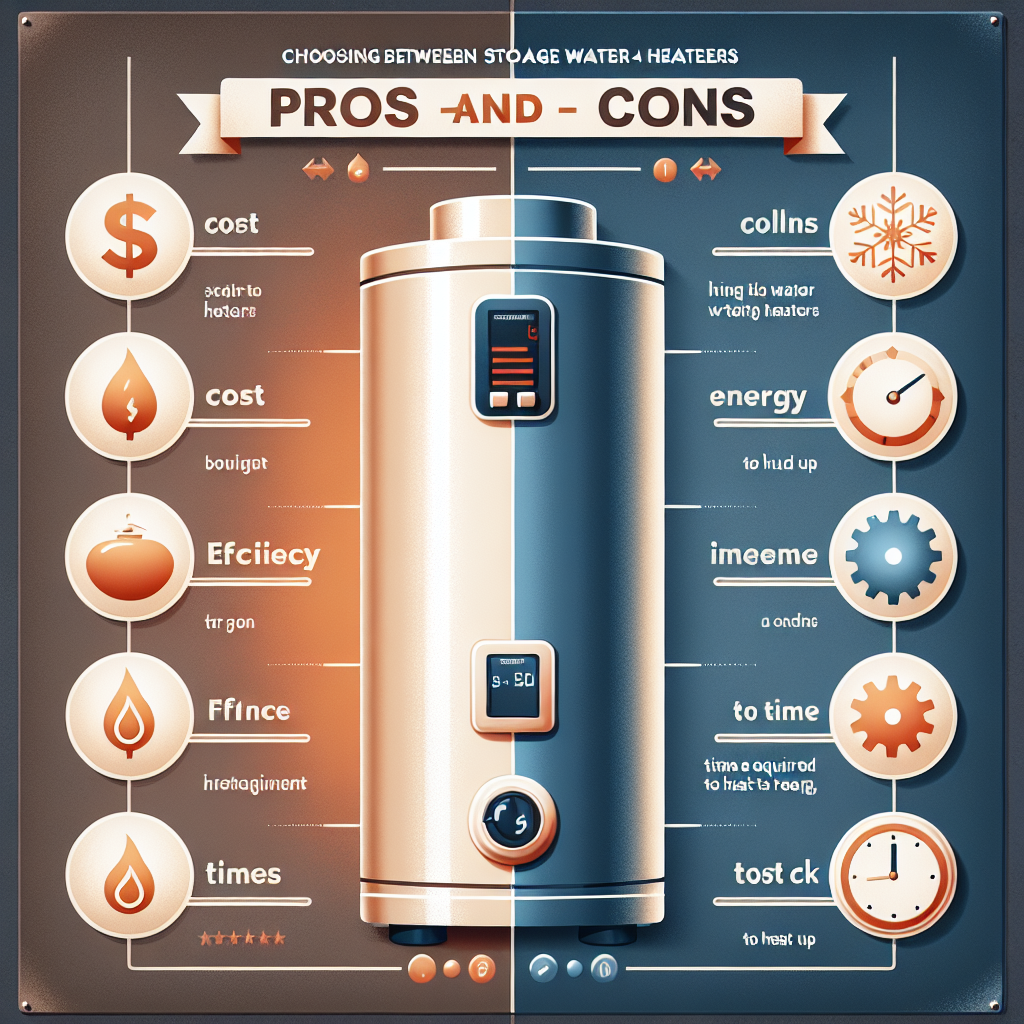When it comes to heating water for your home, the choice between a storage water heater and an instant (or tankless) water heater can be overwhelming. Both types come with their own sets of advantages and disadvantages, and selecting the right one depends on various factors such as your household’s hot water needs, budget, and available space. In this article, we’ll explore the pros and cons of both storage and instant water heaters to help you make an informed decision.
Understanding Storage Water Heaters
What Are Storage Water Heaters?
Storage water heaters, commonly known as tank water heaters, are the traditional means of heating water. They store a specific amount of water (usually between 20 to 80 gallons) in an insulated tank, heating the water continuously to maintain the desired temperature.
Pros of Storage Water Heaters
-
Simplicity and Reliability: With a straightforward design, storage water heaters are easy to install and maintain. They have been around for decades, making them a reliable choice for homeowners.
-
Low Initial Cost: Generally, the upfront cost for a storage water heater is lower than that of an instant water heater, making it an attractive option for budget-conscious buyers.
-
Sustained Hot Water Supply: If your household requires a high volume of hot water at once—like during a morning shower rush—a storage heater can provide that all at once without running out.
- Better for Large Households: For families that consume significant amounts of hot water concurrently, such as multiple showers and laundry, a large tank can meet high-demand needs effectively.
Cons of Storage Water Heaters
-
Energy Inefficiency: Storage water heaters constantly heat water, which can lead to higher energy bills due to standby heat loss (the energy lost when hot water stored in the tank cools down).
-
Space Requirements: These heaters require considerable space due to their size. Finding a suitable location in smaller homes or apartments can be challenging.
- Limited Supply: Once the tank is empty, you must wait for the heater to refill and reheat, which can be inconvenient during peak usage times.
Understanding Instant Water Heaters
What Are Instant Water Heaters?
Instant water heaters, also known as tankless water heaters, heat water on demand rather than storing it in a tank. When you turn on the hot water tap, cold water passes through the unit and is heated by electric coils or gas flames.
Pros of Instant Water Heaters
-
Energy Efficiency: Instant water heaters only heat water when you need it, significantly reducing energy waste and potentially lowering your utility bills over time.
-
Space Saving Design: These units are compact and can be installed in smaller and more convenient locations, freeing up valuable space in your home.
-
Unlimited Hot Water: Since water is heated on demand, you won’t run out of hot water, making it ideal for larger households or homes with high hot water demands.
- Longevity: Tankless water heaters generally have a longer lifespan (up to 20 years) compared to tank water heaters, which typically last about 10-15 years.
Cons of Instant Water Heaters
-
Higher Initial Cost: The upfront cost of purchasing and installing a tankless water heater can be significantly more than that of a traditional tank model.
-
Complex Installation: Installing an instant water heater can require special modifications to your plumbing and electrical systems, which may incur additional costs.
- Limited Flow Rate: While they provide hot water on demand, multiple water sources used simultaneously (e.g., two showers and a washing machine) can overwhelm a tankless model, leading to decreased water temperatures.
Making the Right Choice for Your Home
Choosing between storage and instant water heaters ultimately depends on your specific hot water needs, budget, and space considerations. Here are a few questions to ask yourself before making a decision:
How Much Hot Water Does Your Household Use?
If you have a larger family with simultaneous hot water needs, a storage heater might be more suitable. Alternatively, if your usage is spread out, an instant water heater could be a better fit.
What Is Your Budget?
Consider both the upfront costs and potential long-term savings. While instant water heaters have a higher initial investment, they can save you money on energy bills over time.
Do You Have Space Limitations?
If you’re working with limited space, a tankless model may be preferable. Tankless installations can often be tucked away in small closets or wall-mounted.
Conclusion
Deciding between storage and instant water heaters comes down to individual needs and preferences. By weighing the pros and cons of each option, you can make a choice that not only meets your hot water demands but also aligns with your budget and space constraints. Whether you prefer the reliability of a storage heater or the energy efficiency of a tankless option, understanding your options is the key to making a smart investment for your home. Remember, whatever choice you make, ensuring you have a reliable hot water source is crucial for comfort and convenience in your daily life.


